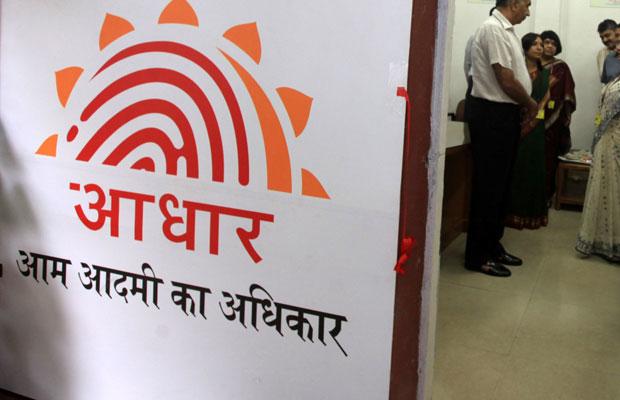Aadhaar is a Reasonable Restriction on the Right to Privacy

Image Courtesy: Express Computer
The Additional Solicitor General (ASG) Tushar Mehta discussed the doctrine of proportionality as well as the limitations to privacy during his submissions for the Aadhaar hearing on Wednesday. On the next day, his submissions focussed on the Prevention of Money Laundering Act, 2002. Thereafter, Senior Counsel Rakesh Dwivedi commenced his submissions. Dwivedi argued that the architecture of Aadhaar and the UIDAI does not provide any room for surveillance.
Continuing with the tests of the proportionality of Aadhaar, Mehta referred to Aharon Barak’s definition of the doctrine of proportionality. Barak was a former Chief Justice of the Supreme Court of Israel. He had laid down four ingredients by which the proportionality of a legislation can be determined. First, the limitation of a fundamental right must be for a proper purpose. Second, the measures undertaken must be rationally connected to fulfilling the purpose. Third, the measures must be necessary, and alternative, less stringent measures are not an option. Fourth, the objective of the measures to be achieved must be balanced with the need to protect fundamental rights.
While speaking about ‘reasonable’ restrictions to privacy, the ASG referred to four cases, three were verdicts of the Supreme Court of India; the fourth was a decision from the USA.
- PUCL v. Union of India (2003)
The petition in this case was in relation to election candidates disclosing the assets and liabilities of their spouses. The Supreme Court had said that the right to privacy of an individual can be superseded by the right to information of the greater public.
- D. Tiwari v. Rajiv Shekhar (2012)
The petition in this case was in relation to a DNA test for paternity. The Delhi High Court had directed that the sample could be taken by force, if necessary. However, the Supreme Court modified the Order, to protect the privacy of the individual. They directed the petitioner to submit a sample, but the sample could be taken in his own home, in the presence of the putative son and his mother.
- Subramanian Swamy v. Union of India (2016)
In this case the Supreme Court upheld the Constitutional validity of criminal defamation. The Court held that public interest could be promoted through social control – meaning that an acceptable restraint on free speech serves a social purpose, however an absolute restraint does not.
- Vernonia School Dist. 47J v. Acton (1995)
This case was related to student athletes, who had to mandatorily submit urine samples for a new school anti-drug policy. The Supreme Court of the United States held that the infringement of privacy was negligible when considering the aim of the policy -- to contain drug use among schoolchildren.
On Thursday, the ASG then took up the issue of privacy, in relation to the Prevention of Money Laundering Act, 2002. He submitted that Aadhaar was only required to open a bank account, or to be linked with an existing account. He refuted the petitioner’s submission that constant Aadhaar verification would be enabled. The Chief Justice then remarked that freezing bank accounts for the want of Aadhaar could violate Article 300A – the right to property. Justice Chandrachud also mentioned that under Rule (9)(1)(b) of the Prevention of Money Laundering Rules, 2005, international transactions of Rs. 50,000 or above require identity verification. This rule in itself could sufficiently check money laundering. However, the ASG submitted a 1966 decision of the Supreme Court in State of Nagaland v. Ratan Singh, which allowed a subordinate authority to modify Rules in order to meet a broader objective – even though in doing so, the authority may have violated fundamental rights. However, it should be noted that in this case, the situation was ‘extraordinary’. In case of Aadhaar, the situation is not as ‘extraordinary’ as some would claim.
From this point, Senior Counsel Rakesh Dwivedi commenced his submissions. He focussed on the surveillance aspect of Aadhaar. He stated that surveillance is not possible under the Aadhaar architecture. Referring to the CBI Master Circular, the State can carry out surveillance without having to use Aadhaar. Ironically, Aadhaar, as a counter-terrorism tool, had been mentioned in the past by various proponents. The Senior Counsel then referred to section 32 of the Aadhaar Act, which prevents the UIDAI from receiving any information regarding the purpose of the verification. He also mentioned section 29(1), which bars the UIDAI from sharing the biometric information. Regarding the information collected by the UIDAI, he stated that photographs do not serve any purpose, neither do fingerprints, except maybe to the palmists. The Senior Counsel may have missed the fact that facial recognition is a technology in the works, if photographs are not an issue now, they are likely to become one in the near future.
Get the latest reports & analysis with people's perspective on Protests, movements & deep analytical videos, discussions of the current affairs in your Telegram app. Subscribe to NewsClick's Telegram channel & get Real-Time updates on stories, as they get published on our website.
























